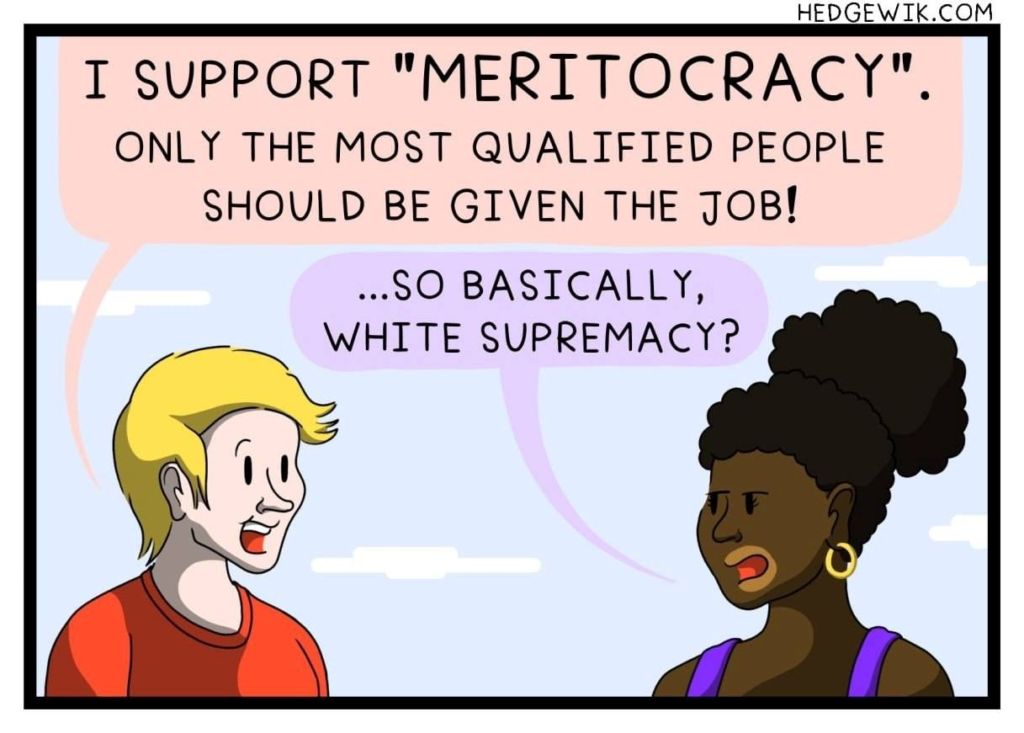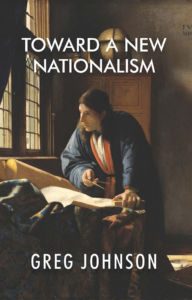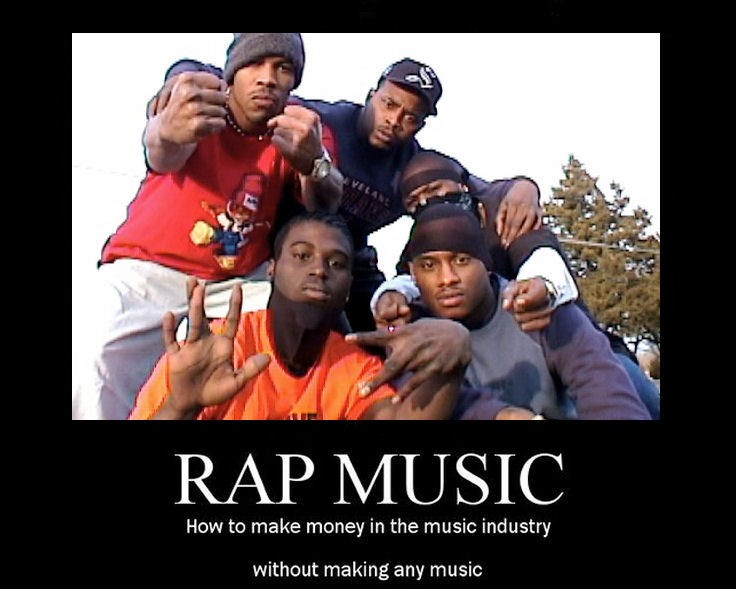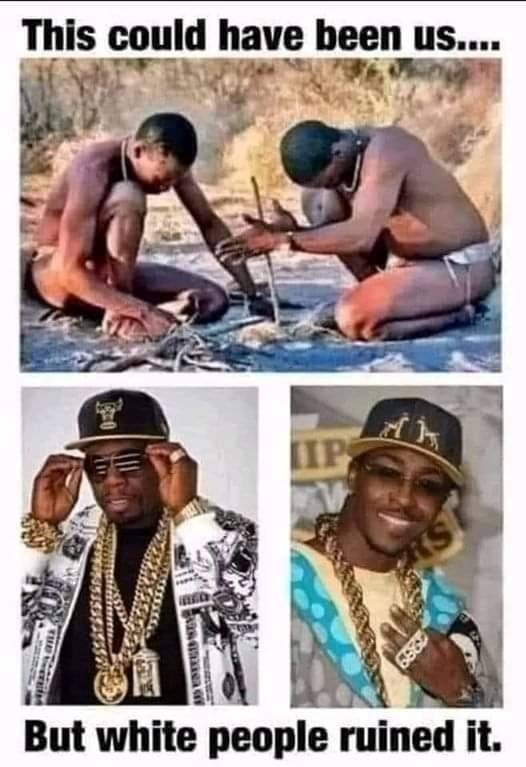Part 3 of 3 (Part 1 here, Part 2 here)
Is police brutality really about race?
I’ll give the chapter’s title a short answer. Of course police brutality is about race. After all, remember the Prime Directive! “It is about race if a person of color thinks it is about race.” Multitudes of them believe that police brutality is about race, and that makes it true; modus ponens, QED.
The personal anecdote opens with a discussion of an incident in which the author got pulled over by a road pirate for going one mile per hour over the speed limit. Although no brutality occurred or anything else egregious (beyond the literal highway robbery itself, of course), it was frightening. She had a prior experience at 16 that was worse. Besides, cops have it in for blacks. Statistics are then presented allegedly proving the truth of this. As for the later traffic stop, the question remained: Was it about race?
Granted, the speed-trap racket has nothing to do with public safety. De minimus non curat lex — except when someone’s making a buck off of it. Likewise, I could assure the author that it probably wasn’t about race, though that would be contradicting the Prime Directive. Much like other kinds of thieves, road pirates are simply in it for the money, and they’re equal-opportunity extortionists. Plenty of whites get shaken down under the cover of law, including Yours Truly. (One particular porker — black, if it matters — gave me almost as much unprovoked nastiness as the first road pirate that the young Ijeoma experienced.) Local residents often suffer from anarcho-tyranny, too; several town councils brought in police departments to pump up the budget by skimming ticket revenue from travelers, only to find that they’ve invited a mini-mafia in that extorts residents with frivolous citations. At least among whites, road pirates probably do more than anyone else to diminish respect for the law. Most interactions we have with law enforcement usually involve someone hiding in the bushes with a radar gun playing “Gotcha!”
Regarding serious crime, it’s easy to be misled by statistics and arrive at the wrong conclusions about the racial angle of policing, unless non-white crime rates are factored into the equation. (Asians have low crime rates; apparently we’re forgetting to oppress them.) This will lead to a higher rate of police interactions with non-Asian minorities. During any such encounter, there’s a small risk that things will go terribly wrong. A few become deadly, whether it’s the cop’s fault (such as what happened to Tyree Nichols of Memphis) or the suspect’s fault (such as Michael Brown of Ferguson). With populations much more given to lawlessness, it’s a statistical certainty that they’ll be more likely to be involved in such encounters that become violent. This is especially so for a population that has had it in for police for a long time, and more recently — largely due to the influence of rap music — idolizes the “gangsta” lifestyle and values rebellion for its own sake. As for police, it’s not too difficult to understand why they might regard certain minority groups as a lot of trouble.
But wait! There’s more!
There has not been a time in American history where our police force has not had a contentious and often violent relationship with communities of color. Our police forces were born from Night Patrols, who had the principal task of controlling black and Native American populations in New England, and Slave Patrols, who had the principal task of catching escaped black slaves and sending them back to slave masters.
That one’s backed by a scholarly citation from a professor at Eastern Kentucky University. Still, I find it a little iffy. The first stirrings of police forces in the Anglo-American legal tradition began with the watchmen who were established by the Ordinance of 1233 and the Assize of Arms of 1252, back when Britain was as white as the driven snow. Even so, if the professor is right, then does this mean that America without non-whites would be so peaceful that police would be unnecessary?
Although the author isn’t the “hood rat” type, surely she’s aware of the elevated crime rate among her less-refined brethren. Has she put two and two together about the implications for police encounters?
I would be remiss if I did not acknowledge that there is higher crime in some cities where larger minority populations live. Yes, black men are more likely to commit a violent offense than white men. No, this is not “black-on-black” or “brown-on-brown” crime. Those terms are 100 percent racist.
After explaining away the unflattering statistics, next up is the well-worn argument that poverty causes crime. This trope, more Rousseau than Rousseau himself, is worthy of its own discussion. Sometimes it amounts to a responsibility deflection cop-out. For now, I’ll say that the “poverty causes crime” argument doesn’t explain honest paupers, rich crooks, or differential rates of non-economic crimes. Could entitlement mentality be a factor influencing criminal behavior, as well as lack of character and deficient social responsibility? The book offers no alternative explanations. The author then breaks out the socioeconomic statistics — and you know what that means. (Of course, right?) Just as in the rest of the book, nothing is really their fault. Society is to blame, which means white people because of systemic this and institutionalized that.
How can I talk about affirmative action?
The introductory personal anecdote describes her educational experience, as well as that of her brother Ahamefule, since grade school. (It’s mainly about how tough it is to be black, and adds little to the point at hand. This lengthy detour might as well have been blue-penciled by the editor, or at least chopped down to a paragraph.) Then it goes into her early work experience. She had some promised promotions fall through under sketchy circumstances. In one instance, the company backed down on a promotion because of the perception that it was given to her because she’s black rather than due to her actual talents.
I see that there’s an easy fix for these concerns: Get rid of affirmative action, which unfairly penalizes whites. Then non-whites no longer will be suspected of getting their positions because of diversity quotas. Golly, why didn’t anyone ever think of that before? Now let’s cut through the BS. Minoritists expect preferential treatment like Affirmative Action, government contract set-asides, DIE programs, and so forth, but they resent the perception that they’re benefiting from these special goodies. (Of course, right?) Obviously, that’s a case of wanting to have one’s cake and eat it. Recall also the author’s operating definition of privilege: “an advantage or a set of advantages that you have that others do not.” How ironic.

You can buy Greg Johnson’s Truth, Justice, & a Nice White Country here
Other than that, she wasn’t enjoying her experience in corporate hell. She found a different job, but then “The ‘bright’ and ‘energetic’ reputation that I had always had was soon augmented with ‘loud’ and ‘opinionated.'” She regards this assessment of her as racially motivated. (Ijeoma, opinionated? Perish the thought! Why would anyone think so?) Of course it’s about race, because she says so; see again the Prime Directive in Chapter 1!
My life story is far different, since white people are born with silver spoons in our mouths. First I studied abroad at Eton, where the magic hat sorted me into Slytherin. After graduation, I took a world tour for summer vacay. Thank goodness my trust fund’s conservator is quite a pushover and lets me fly first class; I hate being crammed in with icky plebs! I got into Yale on a legacy admission with a full scholarship. I was tapped for the elite Skull and Bones society, and attained the rank of underboss. Then Daddy pulled some strings to get me in on the management track for Goldman Sachs; Bob’s yer uncle! My entry level job was only six figures, but I suppose everyone has to pay their dues, right?
More seriously, my tales of corporate hell could exceed the author’s, if it’s really necessary to compare woes in order to make a point. Likewise, I’ve been promised promotions multiple times, and nothing happened. As I said before, if I could’ve predicted that I’d never get off the bottom of the corporate ladder no matter how proficient I got, I would’ve flaked off my education and worked as a bouncer for a titty bar. The fact is that contemporary capitalism is seldom a bucket of joy, unless you’re in a corner office lighting cigars with $100 bills. Did I mention that money is the universal solvent?
Fortunately for plucky Ijeoma, she made her escape from corporate hell through writing. Ultimately, this is what got her into the skintellectual racket. She says it was an uphill battle because — prepare to be surprised — the publishing industry is too white. (Of course, right?) Absolutely; the literary-industrial complex is totally awesome for white authors! They just roll the red carpet out for us, sure do!
In fact, when I first became an Alt Right commentator in the summer of 2016, by the end of the year I had made such a pile of swag that I quit my day job and moved to a posh expat neighborhood in Rio. No more neckties, timesheets, boring meetings, and performance reviews ever again, thank Wotan! As we all know, the mainstream media began enthusiastically promoting White Nationalism around that time, and I rode the crest of the wave. Since 2020, my vistas expanded like never before thanks to the generous funding of Counter-Currents by Open Mankind Foundation Governance, the RockyFellow Foundation, the Fnord Endowment, and the Gl6balist Ec6nomic F6rum. I’ve been so inundated by offers of book deals, magazine editors pestering me to sign on, and screenwriters wanting to do a biopic of me that I had to hire an agent to keep them from bugging me. At last I can focus on chatting up Rioplatense supermodels and sipping caipirinhas as the surf rolls in at the secluded Praia Olho de Boi.
Cutting things short
And so it came to pass that my recounting has grown to exceeding length. As delighted as I’d be to continue, it’s already pushing it for a book of this stature. I prefer not to tax our esteemed editor’s patience more than I already do, and so often at that. The above recaps the first half of the text, which should provide a good sample of the book’s overall tenor.
Assuredly, though, many other gems abound in the rest, including brilliant passages such as the following panegyric to rap music. One cynic here recently called it “ooga-booga music about bitches and hoez,” but it turns out that, as Bush the Younger might put it, we’ve been misunderestimating it dreadfully:
Rap is, in reality, a difficult and beautiful art form that requires not only musical and rhyming talent, but a mathematically complex sense of timing. Rap is a very diverse art form that can entertain, inform, enrage, comfort, and inspire. Like many art forms, many people will spend their entire lives working at it and will never be better than mediocre. Some, with rare talent, will rise to the top, others with rare talent will continue to toil in obscurity. But if you are a white rapper, you can be “okay” and go multi-platinum.
For brevity’s sake, I already had to skip past much that I wanted to remark on in the first half. To do justice to the entire thing, the review would be as lengthy as John Galt’s speech in Atlas Shrugged, and I’m a quarter of the way in already. Ijeoma Oluo has such singular talent that each sentence of hers needs — nay, demands — an entire paragraph in which to formulate a suitable reply. To see the full extent of the author’s artistry in action, you may of course savor the book in its original form.
How disadvantaged are blacks in the US?
Before wrapping things up, it’s time to address the persistent ostinato that resounds throughout So You Want to Talk About Race like a steady drumbeat. This is the idea that blacks have it tough in our society. Granted, the author does bring her perspective, but I’m disinclined to accept it as the only valid one. Despite the litany of woes about being a black woman in the United States, she hasn’t moved to Nigeria. (Of course, right?) If America really were such a bucket of hell for the precious minorities, then she’d be on the first plane to Lagos. I’m not buying the premise that being black is such an unrelenting horror. All told, the book’s parade of argumenta ad misericordiam was unconvincing.

You can buy Greg Johnson’s Toward a New Nationalism here.
Blacks who don’t make themselves unemployable by committing crimes or dropping out of school can go far, even those of modest abilities. In college, their skin color qualifies them for several different scholarships that are available only to blacks. Because of their race, they get a leg up in admissions, too, including to Ivy League universities. (The recent SCOTUS ruling only means the schools will have to pretend to hide it.) The process repeats if they want to go to grad school. There’s even been recent discussion of eliminating admissions standards altogether.
This is the case even in some medical schools, and it’s not difficult to see how that will turn out. I wouldn’t have a problem with being treated by a black doctor who legitimately qualifies. Until recently, all applicants to medical schools have been held up to the same objective standards. When future doctors begin graduating under relaxed standards, this will no longer be certain. Now that they’re waiving MCAT scores as an entrance requirement in the name of political correctness, that will increase the number of medical students who previously wouldn’t have been able to make the cut. Grade inflation is already a thing, and with diversity grading an upcoming trend, quality might really start slipping. Sooner or later, this mania for enforcing equality of results will have deadly consequences.
When blacks arrive in the job market, they benefit from corporate environmental, social, and governance/diversity, equity, and inclusion quotas. Some companies have race-specific support groups to make them feel comfortable, though of course no such groups exist for whites. It’s more difficult to fire underperforming minorities, because they can sue for discrimination even on flimsy grounds. Likewise, turning them down for promotion is perilous, since they can lawyer it up. Blacks aren’t being oppressed; they’re being coddled.
Conclusion
At first I held out hope that So You Want to Talk About Race might be better than the average ethnomasochism manual. I figured I might find Ijeoma Oluo to be personable, maybe even admirable. After all, she’s a black lady with a real African name — not something like La’Treen — and is tuned into her authentic culture. Since her ancestors didn’t have the cotton-picking experience or even the “riding in the back of the bus” experience, maybe she wouldn’t have the standard-issue chip on her shoulder. Unfortunately, I was soon to be disappointed. Still, she’s more agreeable than that transcendentally tedious social justice memebot Robin DiAngelo — though that’s really not saying much.
The book turned out to be an odyssey of solipsistic Afro-dyspepsia. The best I can say for this deluge of one-sided bellyaching is that there’s worse out there. Among the blame, blame, and more blame, I saw nary a word of praise for whites, or a glimmer of recognition that non-whites have a scintilla of responsibility for any of their problems. If anything of the sort is there, I must’ve blinked. I have no idea why any self-respecting liberal — if there is such a thing these days — would take all that lachrymose browbeating seriously. Ijeoma Oluo’s second book has the superlatively snotty title Mediocre: The Dangerous Legacy of White Male America, so apparently her ‘tude hasn’t improved much.
I will credit the author for having a thorough knowledge of Leftist talking points. To qualify as a sociology professor, all she’d need is an expensive piece of paper. But other than some personal anecdotes, there’s not too much that’s original or profound that sets So You Want to Talk About Race apart from other ethnomasochism manuals. It’s pretty much just a rehashing of academia’s latest trends in cultural Marxist slop.
Nevertheless, I predict that Ijeoma Oluo will continue to have a lively career as an anointed authority on race relations courtesy of the literary-industrial complex, so long as she remains a good golem, stays on message with The Narrative, and doesn’t figure out that Joe Sixpack isn’t her real enemy.
Ijeoma%20Oluoand%238217%3Bs%20So%20You%20Want%20to%20Talk%20About%20Race%0APart%203%0A
Share
Enjoyed this article?
Be the first to leave a tip in the jar!
* * *
Counter-Currents has extended special privileges to those who donate at least $10/month or $120/year.
- Donors will have immediate access to all Counter-Currents posts. Everyone else will find that one post a day, five posts a week will be behind a “paywall” and will be available to the general public after 30 days. Naturally, we do not grant permission to other websites to repost paywall content before 30 days have passed.
- Paywall member comments will appear immediately instead of waiting in a moderation queue. (People who abuse this privilege will lose it.)
- Paywall members have the option of editing their comments.
- Paywall members get an Badge badge on their comments.
- Paywall members can “like” comments.
- Paywall members can “commission” a yearly article from Counter-Currents. Just send a question that you’d like to have discussed to [email protected]. (Obviously, the topics must be suitable to Counter-Currents and its broader project, as well as the interests and expertise of our writers.)
To get full access to all content behind the paywall, please visit our redesigned Paywall page.
Related
-
Think about It: Michael Nehls’ The Indoctrinated Brain, Part 2
-
Are Whites Finally Waking Up?
-
Think about It: Michael Nehls’ The Indoctrinated Brain, Part 1
-
Looking for Anne and Finding Meyer, a Follow-Up
-
Counter-Currents Radio Podcast No. 584: The Counter-Currents Book Club — Jim Goad’s Whiteness: The Original Sin
-
The Origins of Western Philosophy: Diogenes Laertius
-
Birch Watchers
-
Nowej Prawicy przeciw Starej Prawicy, Rozdział 6: Znaczenie filozofii dla zmiany politycznej



2 comments
How long would she last in a debate with Jared Taylor?
It all depends on whether she could keep the motor mouth running at 8000 RPM. If she had to pause to breathe and Jared got in a word edgewise, she’d start looking silly to anyone who didn’t have a recent degree ending in “studies”.
Comments are closed.
If you have Paywall access,
simply login first to see your comment auto-approved.
Note on comments privacy & moderation
Your email is never published nor shared.
Comments are moderated. If you don't see your comment, please be patient. If approved, it will appear here soon. Do not post your comment a second time.